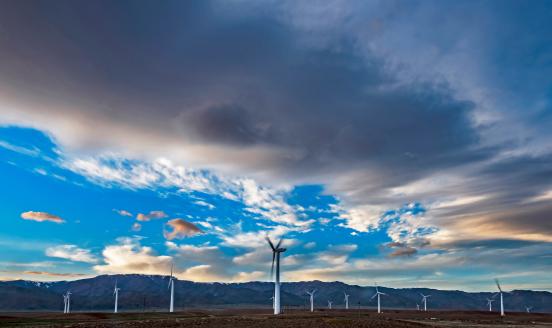What the "gilets jaunes" movement tells us about environment and climate policies
Simone Tagliapietra and Georg Zachmann write on the climate governance lesson European governments should learn from the "gilets jaunes" experience.
Over the last two weeks the gilets jaunes (“yellow vests”) movement has quickly spread across France, leaving the country’s roads – as well as its political leadership – in turmoil. The movement emerged spontaneously against the rising fuel taxes intended by the government to foster the ecological transition by encouraging the use of more environment-friendly vehicles.
According to the gilets jaunes, rising fuel prices hit workers who depend on cars to get to and from work, particularly in the countryside. The dispute has therefore sparked a rift between the city-dwelling ‘elite’ and the rural poor.
President Macron expressed his preference for taxing fuel over taxing labour, and claimed that “people complaining about rising fuel prices are the same ones who complain about pollution and how their children suffer”.
In our view, the gilets jaunes movement represent an interesting case of what risks becoming an increasingly frequent trend in Europe, as environmental and climate policies continue to be strengthened towards achieving the targets assumed under the Paris Agreement.
In order to avoid disastrous consequences of global warming, greenhouse-gas emissions need to be reduced drastically in the coming decades. The required deep decarbonisation process will have wide-ranging implications for Europe.
By approximately 2050, no European country will be able to use coal, oil or gas to warm houses, drive cars or generate electricity – unless this is compensated by negative emissions. Major industrial sectors will have to find ways of reducing greenhouse-gas emissions that are now intimately linked to their production processes. The agricultural sector, which has so far been largely neglected, will have to play a much more prominent role in decarbonisation.
We need to act now to put the right incentives in place to allow the transition towards a low-carbon society. This is not only because every ton of carbon released into the atmosphere today contributes to climate change we will see by 2050 – but also because we need to gain momentum in terms of investments into innovation and its deployment.
But the size of the challenge requires departing from the business-as-usual by means of intrusive policy measures. And here is where the example of the gilets jaunes comes into play. Should policies be crafted without an extensive consideration of their distributional consequences, there is a risk of a social backlash against decarbonisation.
In order to avoid this risk, and to ensure the decarbonisation process moves forward with strong social acceptance, it is crucial that governments put fair policies in place. Decarbonisation can be achieved through different policy pathways, and some of them are better at minimising the impact on low-income households.
For instance, putting carbon prices on aviation can reduce emissions without majorly affecting the poor. Lump-sum transfers to the most vulnerable segments of the society could allow for an increase in fuel taxes without compromising social acceptance. Public programmes to improve the energy efficiency of social housing can actually make low-income households better off in various ways. And not providing industry with tens of billions in terms of free-emission allowances from the budget gives governments more fiscal space to compensate their populations for increasing fuel and electricity prices.
Climate policies can be designed in a way that does not increase inequality. That is, better climate policies exist beyond just raising fuel taxes.
European governments should learn a lesson from the gilets jaunes experience. They should make sure to properly assess the distributional effects of their climate policies, and assume adequate measures to address them. This is the only way to ensure the achievement of our climate-change mitigation goals in a socially-sustainable manner.





